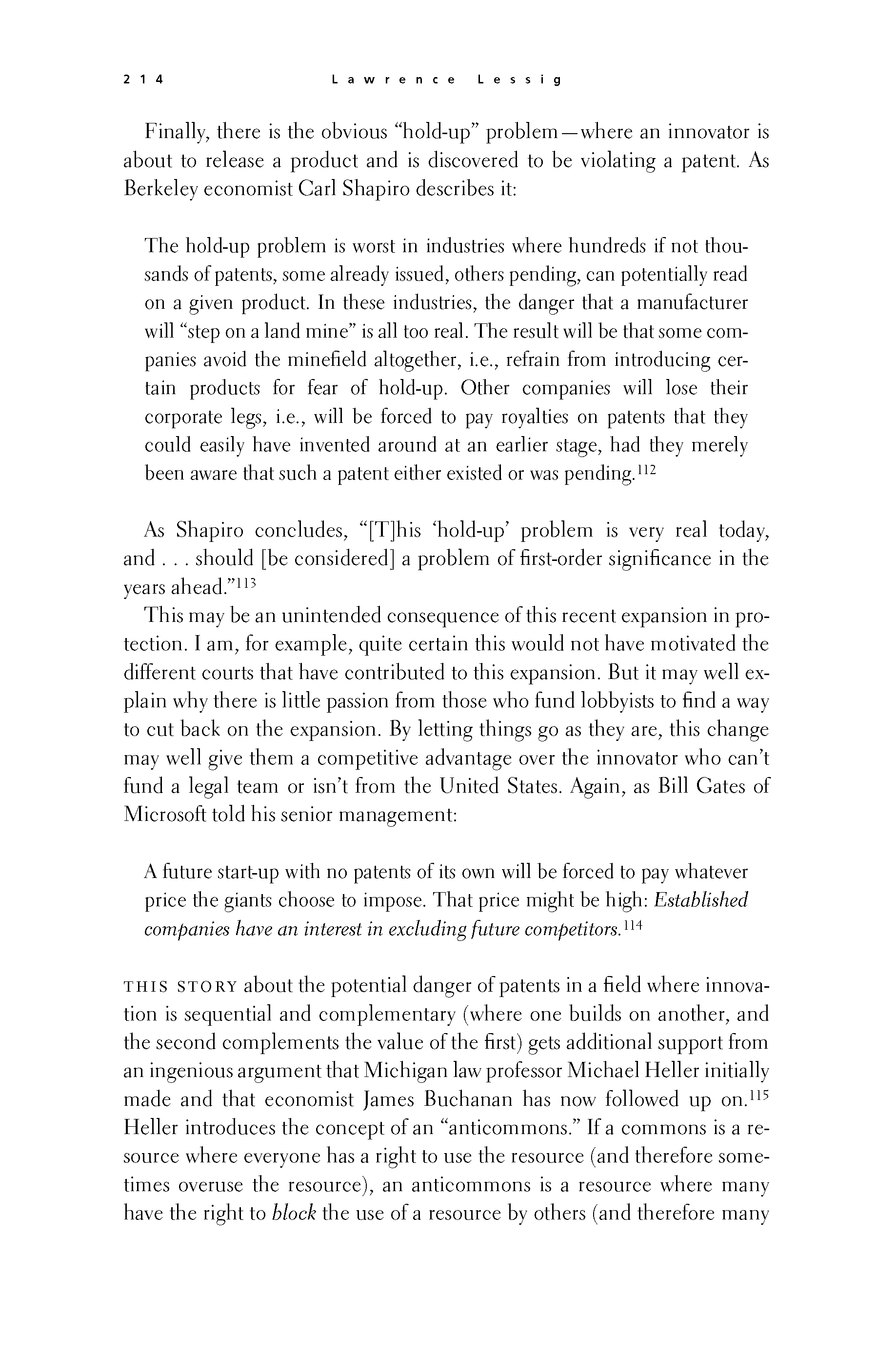 p213 _
-chap- _
toc-1 _
p214w _
toc-2 _
+chap+ _
p215
p213 _
-chap- _
toc-1 _
p214w _
toc-2 _
+chap+ _
p215
Finally, there is the obvious "hold-up" problem -- where an innovator is
about to release a product and is discovered to be violating a patent. As
Berkeley economist Carl Shapiro describes it:
____ The hold-up problem is worst in industries where hundreds if not thou-
____ sands of patents, some already issued, others pending, can potentially read
____ on a given product. In these industries, the danger that a manufacturer
____ will "step on a land mine" is all too real. The result will be that some com-
____ panies avoid the minefield altogether, i.e., refrain from introducing cer-
____ tain products for fear of hold-up. Other companies will lose their
____ corporate legs, i.e., will be forced to pay royalties on patents that they
____ could easily have invented around at an earlier stage, had they merely
____ been aware that such a patent either existed or was pending.[11-112]
As Shapiro concludes, "[T]his 'hold-up' problem is very real today,
and... should [be considered] a problem of first-order significance in the
years ahead."[11-113]
This may be an unintended consequence of this recent expansion in pro-
tection. I am, for example, quite certain this would not have motivated the
different courts that have contributed to this expansion. But it may well ex-
plain why there is little passion from those who fund lobbyists to find a way
to cut back on the expansion. By letting things go as they are, this change
may well give them a competitive advantage over the innovator who can't
fund a legal team or isn't from the United States. Again, as Bill Gates of
Microsoft told his senior management:
____ A future start-up with no patents of its own will be forced to pay whatever
____ price the giants choose to impose. That price might be high: _Established_
____ _companies_have_an_interest_in_excluding_future_competitors._[11-114]
///\\\
///\\\
This story about the potential danger of patents in a field where innova-
tion is sequential and complementary (where one builds on another, and
the second complements the value of the first) gets additional support from
an ingenious argument that Michigan law professor Michael Heller initially
made and that economist James Buchanan has now followed up on.[11-115]
Heller introduces the concept of an "anticommons." If a commons is a re-
source where everyone has a right to use the resource (and therefore some-
times overuse the resource), an anticommons is a resource where many
have the right to _block_ the use of a resource by others (and therefore many
[[214]]
p213 _
-chap- _
toc-1 _
p214w _
toc-2 _
+chap+ _
p215